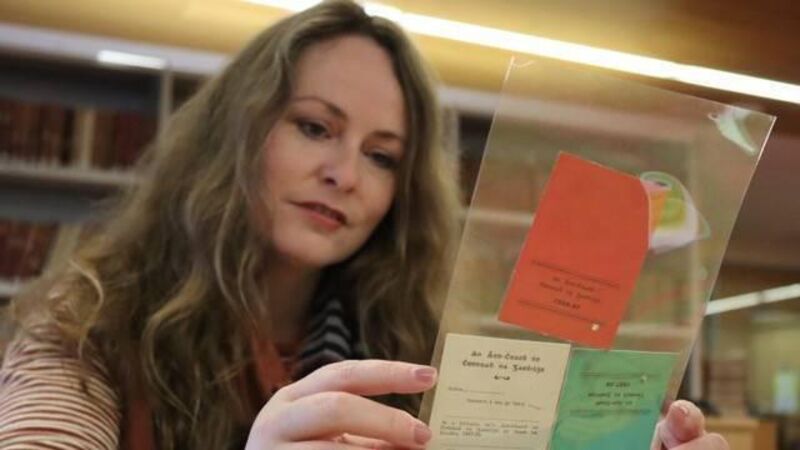Books are my business: Archivist at University of Galway Niamh Ní Charra

Niamh Ní Charra, an archivist based at the University of Galway, examining some archive material. Picture: University of Galway
Try from €1.50 / week
SUBSCRIBENiamh Ní Charra, originally from Killarney, Co Kerry, is an archivist based at the University of Galway, where she is project archivist for their two largest archives: the Conradh na Gaeilge and Mary Robinson collections.
She is also communications and campaigns officer for the Archives and Records Association, Ireland, and a fiddle and concertina player.
Already a subscriber? Sign in
You have reached your article limit.
Annual €130 €80
Best value
Monthly €12€6 / month
Introductory offers for new customers. Annual billed once for first year. Renews at €130. Monthly initial discount (first 3 months) billed monthly, then €12 a month. Ts&Cs apply.
CONNECT WITH US TODAY
Be the first to know the latest news and updates
Newsletter
The best food, health, entertainment and lifestyle content from the Irish Examiner, direct to your inbox.
Newsletter
The best food, health, entertainment and lifestyle content from the Irish Examiner, direct to your inbox.
© Examiner Echo Group Limited